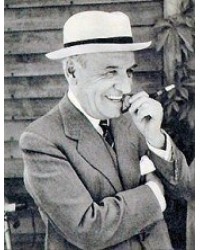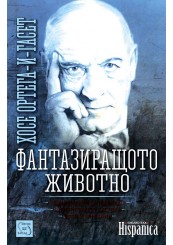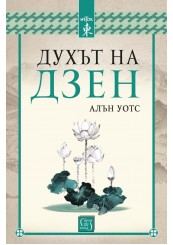José Ortega y Gasset

José Ortega y Gasset (1883–1955) was a Spanish philosopher, and essayist. He worked during the first half of the 20th century, while Spain oscillated between monarchy, republicanism, and dictatorship. His philosophy has been characterized as a "philosophy of life" that "comprised a long-hidden beginning in a pragmatist metaphysics inspired by William James, and with a general method from a realist phenomenology imitating Edmund Husserl, which served both his proto-existentialism (prior to Martin Heidegger's) and his realist historicism, which has been compared to both Wilhelm Dilthey and Benedetto Croce."
José Ortega y Gasset was born 9 May 1883 in Madrid. His father was director of the newspaper El Imparcial, which belonged to the family of his mother, Dolores Gasset. The family was definitively of Spain's end-of-the-century liberal and educated bourgeoisie. The liberal tradition and journalistic engagement of his family had a profound influence in Ortega y Gasset's activism in politics.
Ortega was first schooled by the Jesuit priests of San Estanislao in Miraflores del Palo, Málaga (1891–1897). He attended the University of Deusto, Bilbao (1897–98) and the Faculty of Philosophy and Letters at the Central University of Madrid (now Complutense University of Madrid) (1898–1904), receiving a doctorate in Philosophy. From 1905 to 1907, he continued his studies in Germany at Leipzig, Nuremberg, Cologne, Berlin and, above all Marburg. At Marburg, he was influenced by the neo-Kantianism of Hermann Cohen and Paul Natorp, among others.
On his return to Spain in 1908, he was appointed professor of Psychology, Logic and Ethics at the Escuela Superior del Magisterio de Madrid and in October 1910 he was named full professor of Metaphysics at the Complutense University of Madrid, a vacant seat previously held by Nicolás Salmerón.
In 1917 he became a contributor to the newspaper El Sol, where he published, as a series of essays, his two principal works: España invertebrada (Invertebrate Spain) and La rebelión de las masas (The Revolt of the Masses). The latter made him internationally famous. He founded the Revista de Occidente in 1923, remaining its director until 1936. This publication promoted translation of (and commentary upon) the most important figures and tendencies in philosophy, including Oswald Spengler, Johan Huizinga, Edmund Husserl, Georg Simmel, Jakob von Uexküll, Heinz Heimsoeth, Franz Brentano, Hans Driesch, Ernst Müller, Alexander Pfänder, and Bertrand Russell.
Elected deputy for the Province of León in the constituent assembly of the Second Spanish Republic, he was the leader of a parliamentary group of intellectuals known as Agrupación al Servicio de la República ("The Grouping at the Service of the Republic"), which supported the platform of Socialist Republican candidates, but he soon abandoned politics, disappointed.
Leaving Spain at the outbreak of the Civil War, he spent years of exile in Buenos Aires, Argentina until moving back to Europe in 1942. He settled in Portugal by mid-1945 and slowly began to make short visits to Spain. In 1948 he returned to Madrid, where he founded the Institute of Humanities, at which he lectured. Upon his return to Spain, he often privately expressed his hostility to the Franco regime, stating that the government did not deserve anyone's confidence and that his beliefs were "incompatible with Franco."
€4.87 (9.52 лв.) €6.09 (11.90 лв.) Ex Tax: €4.47 (8.74 лв.)




